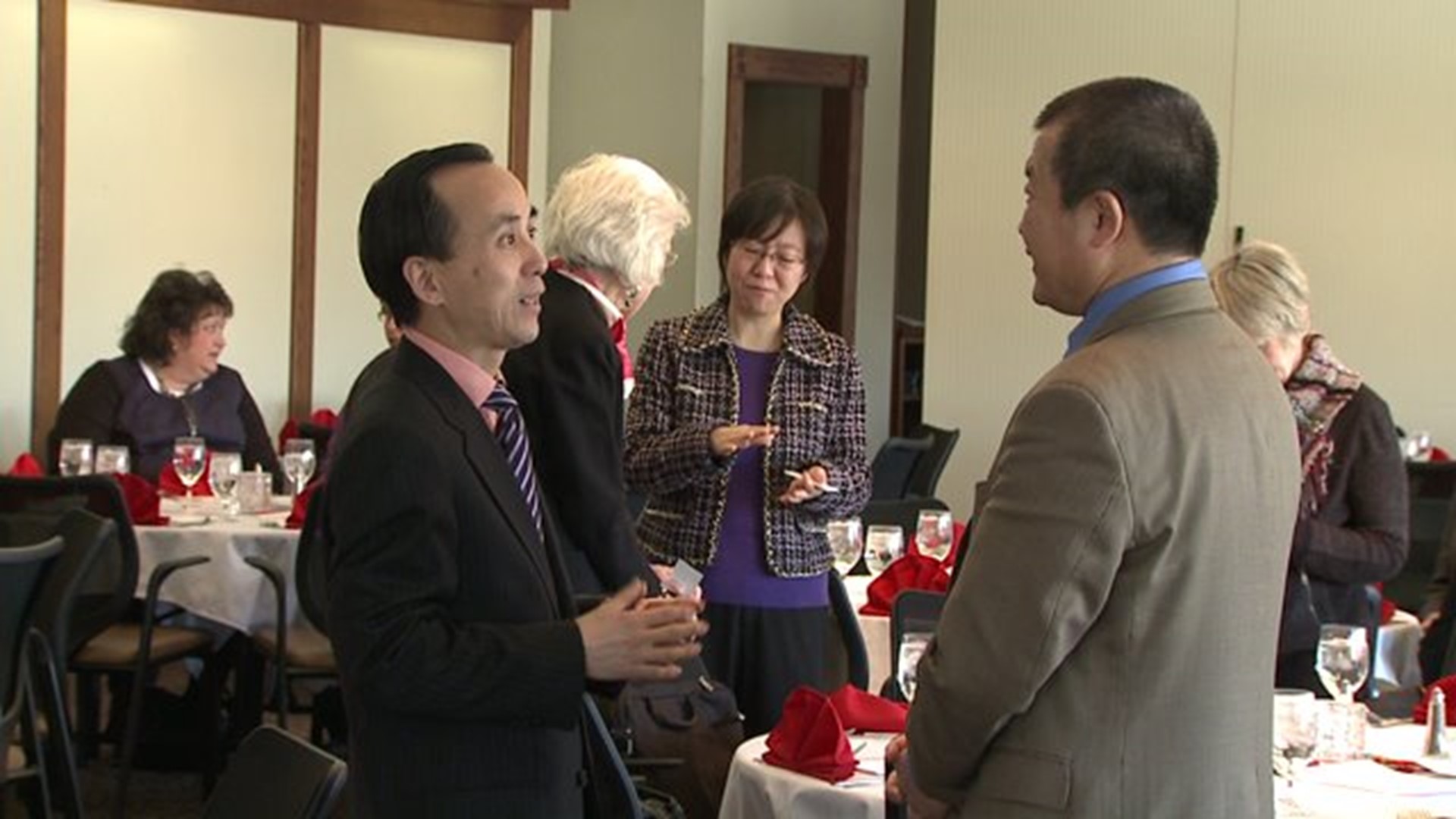Muscatine is showing how old friends can be new business partners.
A close connection with China is inspiring millions in investment and cultural exchanges.
A 30-year odyssey sparked this commercial and cultural renaissance between Muscatine and China.
"They feel loyal to Iowa," said Sarah Lande, Muscatine. "And Iowa feels loyal to them."
Three years ago, incoming President Xi Jinping revisited old friends in Muscatine that he first met in 1985.
That visit has opened the door wider to tourism and trade.
"He has said that friendship is the foundation of good business," said Lande, who hosted the visit. "Have as many exchanges as you can."
That explains a get-together in Muscatine on Thursday.
It's a chance to see where this relationship is going.
"China and the United States are becoming more commercially connected with each other," said Jun Liu, deputy consul general of the People's Republic of China in Chicago. "Muscatine has a very special relationship with China."
Chinese investors are willing to spend millions in Muscatine.
One ambitious project would transform riverfront space into a tourist destination. It would become a hotel to highlight China's fascination with the Mississippi River.
Iowa Governor Terry Branstad has also been an active participant, inspiring exchanges, exports and business deals.
"I think there is no end to what we can do," said Muscatine Mayor DeWayne Hopkins.
Two years ago, a China-based company donated $100,000. It allows Muscatine students to participate in a cultural exchange.
The trips are part of the 100,000 Strong Foundation started by the Obama administration.
"It's absolutely critical that the future workforce of Americans is one that's China savvy," said Travis Tanner, the foundation's chief operating officer.
Xi Jinping's visit in 2012 helped to rekindle that knowledge. In Muscatine, it will help to guide the future.
"Doors were opened," Tanner said. "Friendships were made and developed over the past 30 years. That's resulted in all kinds of wonderful benefits on both sides."
It's a sign of a global economy that's really close to home.

